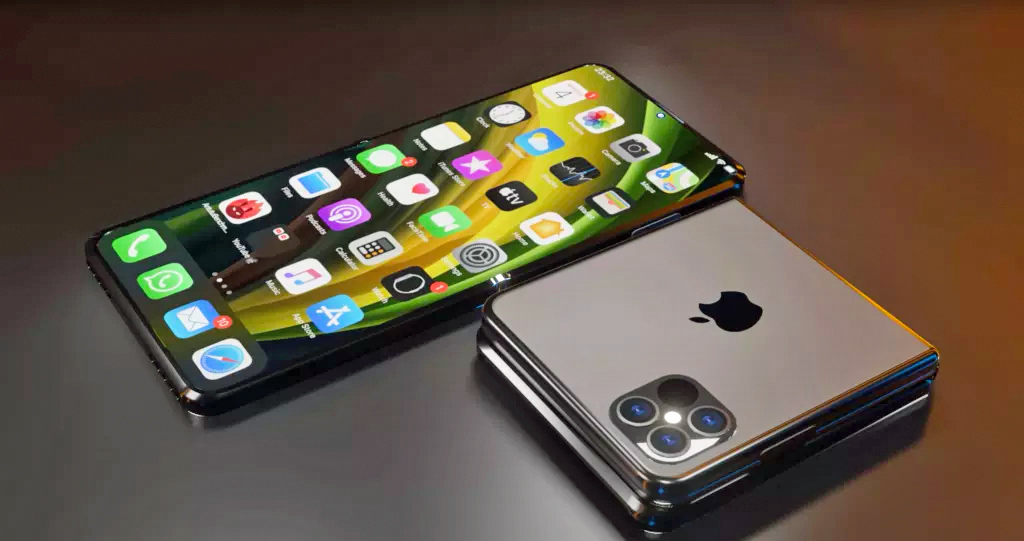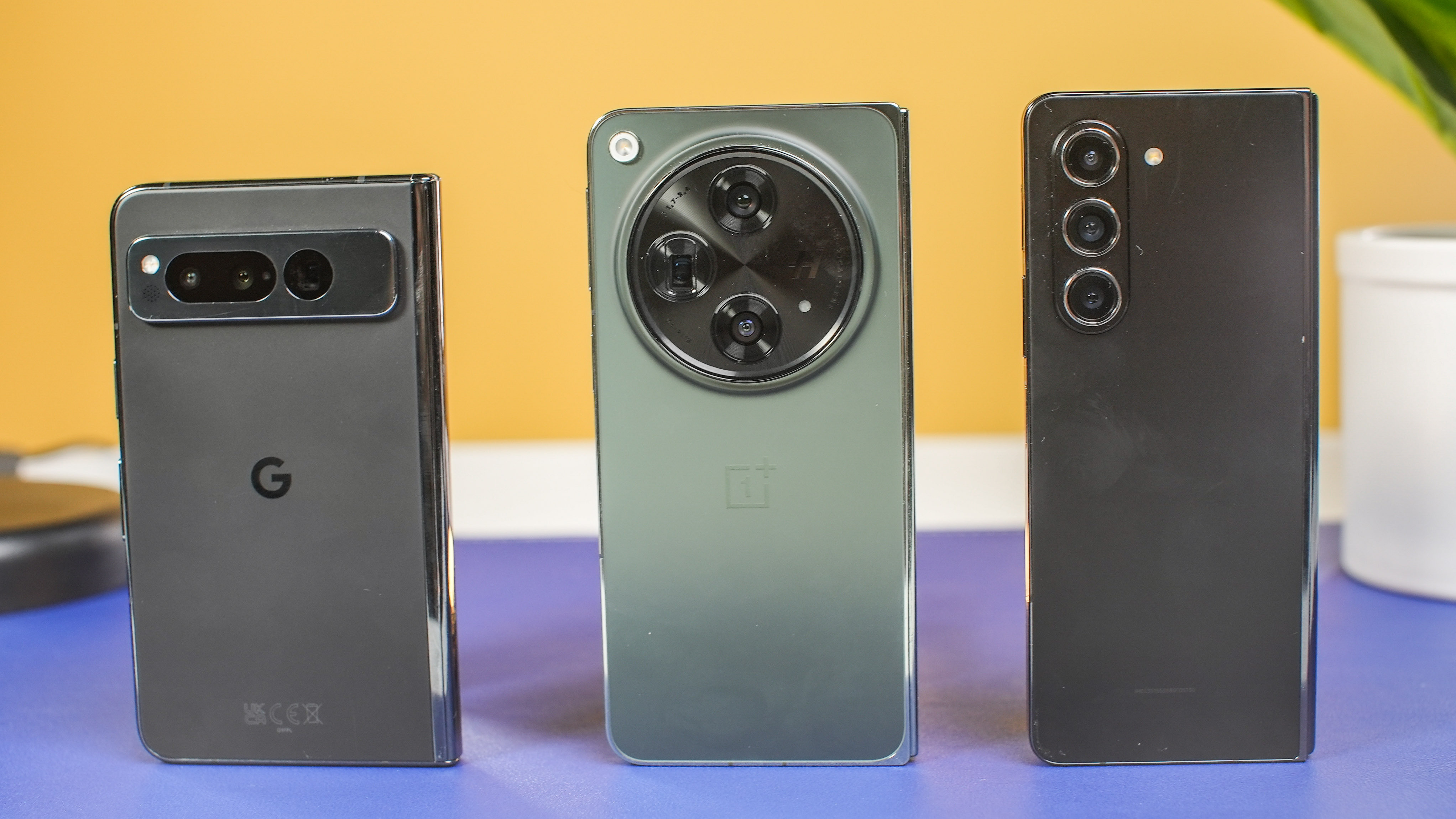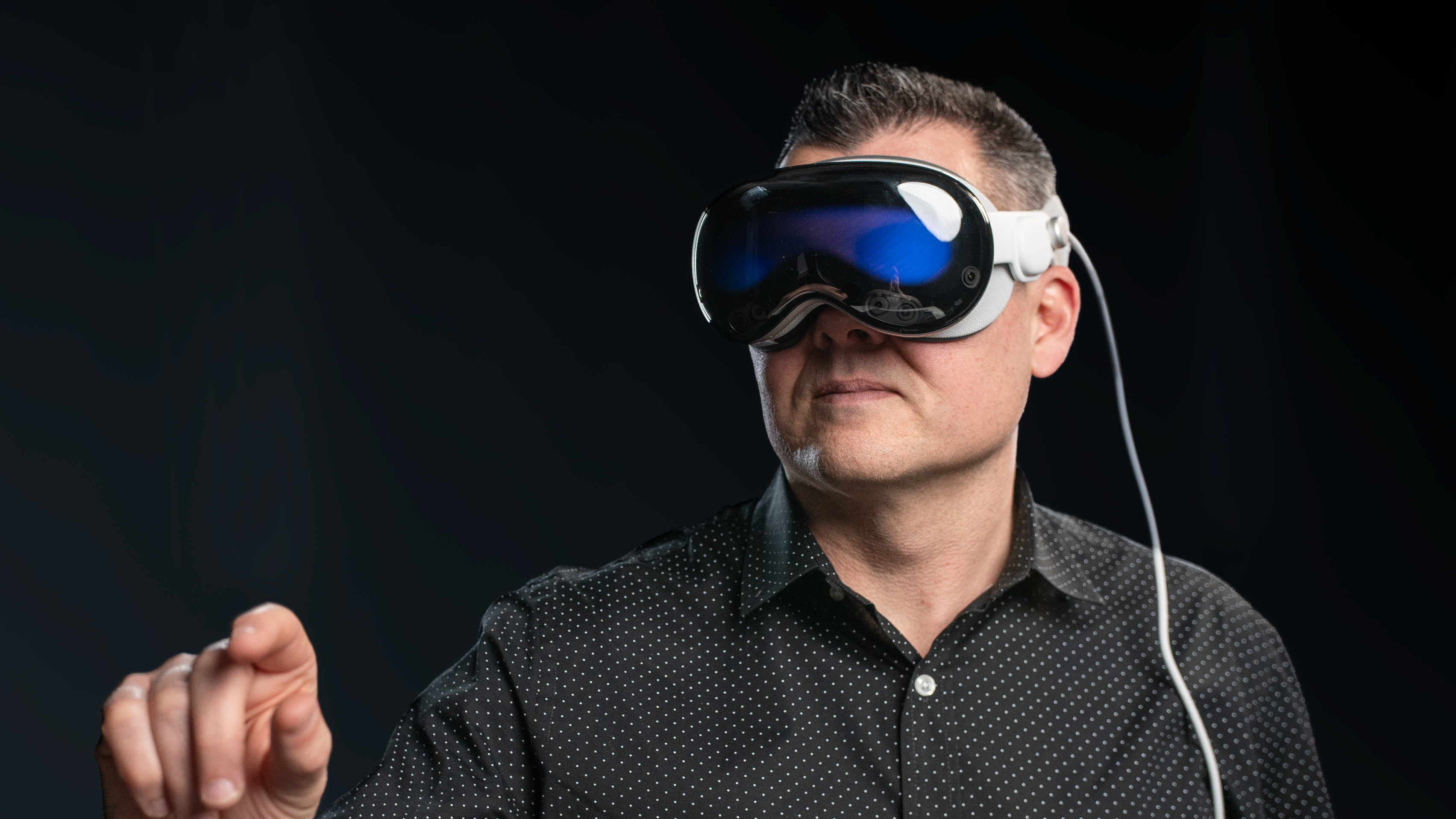
There have been rumors about the possibility of a foldable iPhone Flip for years now, but so far nothing has come of it. In fact the latest rumors suggest that the phone might have been delayed yet again, with a new report claiming that the phone won’t arrive until at least 2027.
As per a TrendForce analyst report picked up by 9to5Mac, it's claimed that the delay is down to Apple being particular about parts and durability, with particular emphasis on the display crease. While we can’t fault Apple for being careful, I do have to wonder what’s taking so long.
Foldable phones aren’t exactly new, and if Apple takes too long it risks turning the iPhone Flip winding up in the same dark hole as the Apple Car.
Foldable competition is growing

Foldable phones first hit the scene in 2018 with the release of the Royole Flex Pai, and 2019 followed with foldables from more established household names like Samsung and Huawei. In the years since a bunch more foldable phones hit the market, primarily in China, but we have seen the number of options increase in the U.S. market as well. Especially in recent years.
Samsung held onto the market for a number of years by default, and while it had a head start it never actually did much with it. In fact the Galaxy Z Flip 5 has the exact same camera hardware as the previous two Z Flip generations. Meanwhile the Galaxy Z Fold 5 has dropped the ball in a number of places — least of which is the same tired design as its predecessors.
But now that there’s some actual competition from Google’s Pixel Fold and the OnePlus Open, the latter of which is pick for the best foldable phone, things may change. In fact all four major foldable phone makers in the U.S. are expected to launch new foldables within the next 12 months and if that annual cycle continues, we could finally start to see some major change in the foldable phone market.
I say this because, until now, the foldable phone market has been rather stagnant. Had Apple released the iPhone Flip already, it would probably have wiped the floor with the competition. Partly because it’s Apple, and people love Apple products, but also because it’ll actually be part of the Apple ecosystem that appeals to loyal iPhone users.
Heck, Apple may have been able to sweep the deck with the iPhone Flip released this year. But the longer it waits, the more challenging that task is going to be. Plus, if that 2027 release date proves true, it’ll be almost a decade after the first foldable phones went on sale. That doesn’t exactly make Apple look proactive.
Rushing is bad, but going to slow is worse
I can certainly understand why Apple would be cautious with the release of a foldable phone. The launch of the original Galaxy Fold was such a disaster that Samsung had to postpone release by around 5 months. And during that time it had to make some adjustments to both the foldable screen and hinge from going catastrophically wrong.
That launch hasn’t done foldable phones any favors, so the last thing Apple wants is to rush a device to market before it’s ready and then deal with the aftermath.
But rushing a product without appropriate quality assurance and care is one thing. It’s another to spend forever designing and developing a product because you’re afraid of releasing something imperfect. Which is exactly the kind of problem the modern Apple seems to have.
The recently-canceled Apple Car is a very good example of that. Even before news broke that the project was scrapped, it was clear that the Apple Car was having a troubled development plagued with delays, loss of key staff, issues finding the right auto-industry partner and lofty near-impossible goals on what this car should be — namely creating a truly autonomous, driver-free car.
So that project was in development for over a decade without anything tangible to show for it. And by continually delaying development on a foldable iPhone, something that rival companies have struggled to make a success out of, Apple runs the risk of the exact same thing happening again.
Perfection is an impossible standard to achieve

It’s also been reported that something similar could have happened to the Apple Vision Pro. The headset had been rumored for a number of years before it actually got announced at WWDC 2023. And according to the report, Apple’s industrial design team didn’t want to release the headset in its current form. They apparently wanted to hold off until Apple could create a pair of true AR Apple Glasses — only to be overruled by CEO Tim Cook.
While the headset hasn’t had the best sales, it did get released. The headset may have its flaws, least of which is the $3,500 price tag, it’s now in a position where Apple can take feedback from users and build a better version. Rather than sitting on technology that could be sold, in the misguided fear that they should be waiting to offer something better.
While I hate to say it, these are not decisions Apple would have made when Steve Jobs was in charge. Or even in the years following his death and Tim Cook’s early years as CEO. That kind of thinking would have held off on releasing the original iPhone because it lacked 3G connectivity, had no App Store or that the call quality was kinda crappy.
If you only ever strive for perfection then you’ll never get anything done — because there’s always going to be something you can do to improve. And sometimes that just has to wait for the second generation.
Bottom line
Apple is one of those companies that does things at its own pace, rarely jumping on the bandwagon simply because the competition is already there. There’s a benefit to taking things slow to make sure they get everything right. But it feels like development on the iPhone Flip is moving at a glacial pace, as Apple seemingly tries to hold itself to impossible standards.
All the while other phone companies have been releasing their own foldable phones and gaining feedback from real world users. Whether they'll be successful in the long term is another matter, but at least they're giving it a shot. So the screen has a crease, and the foldable plastic display isn’t as durable as a piece of non-folding glass. Those are issues, but they’re also issues faced by everyone else — and gives you the opportunity to get things better next time.
Otherwise it just feels like Apple is taking lessons from the Homer Simpson school of life, and avoiding miserable failure by never trying in the first place.

.jpg?w=600)





